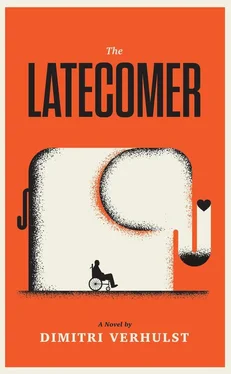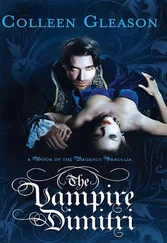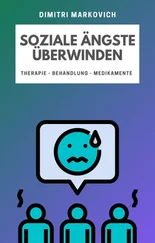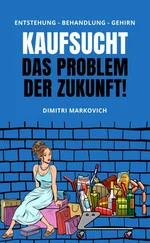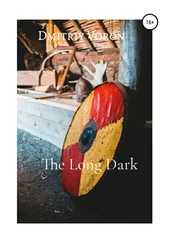Fortunately many years ago, and without Moniek’s knowledge, I had stated in my will that I didn’t give two hoots what they did with my bodily remains — as long as they didn’t stuff me in the ground next to my wife! Moniek and I had spent more than enough nights lying next to each other like corpses, we didn’t need to do it again in a family plot. Let her lie in her tomb alone! She’ll be nice and comfortable. Under her marble, her cross, her photo with her toothpaste-ad smile and the pot of flowers she won’t be able to touch for the photo nobody will take.
I don’t wish to laud myself as some kind of iconoclast, but I did smash the statue of St Rita to pieces. The patron saint of lost causes was swept into a dustpan and ingloriously tipped on top of the household rubbish, nappies and used needles.
I had even more fun getting rid of that half-naked Christ. Late at night I would weep terribly — an anxiety attack was overdue anyway, as were the hallucinations.
Tarzan was in my room and was going to kill me. Help! Help!
Curvy Cora began by reassuring me. She didn’t want to ridicule my fears, but she couldn’t see Tarzan anywhere. Maybe he’d already left, that was possible, because she couldn’t see him under the bed either. And she hushed me to sleep with a sweetie under my tongue that worked like a dream.
But of course Tarzan kept coming to visit. Night after night after night. And why not? After all, Indians with tomahawks had plagued my grandmother.
‘There! Tarzan! Over my pillow! On the wall! Heeeelp!’
‘That’s not Tarzan, Désiré. That’s Jesus!’
That only made my panic attack even more feverish.
They couldn’t keep slipping me knockout drops and injecting me full of tranquillisers. Or tying me down — a disgraceful practice that, to my immense surprise, is still quite accepted and hurt my wrists and ankles like hell. So the easiest solution turned out to be the cheapest and best: the crucifix was simply removed from my room.
And believe it or not, Tarzan never came back.
A radio, yes, I got to bring one of those too. When they plugged it in to test it, a criminologist was speaking. He insisted that our capital was much less dangerous than public opinion would have us believe. Yes, yes, the odd lamentable death did occur here and there in the filthy alleyways. And yes, modest civil wars were stirred up by text message after football matches. And, yes again, both bus drivers and pensioners were sometimes attacked for less than the contents of a handbag. But people who were desperate to be murdered were wasting their time hanging round the city’s depressing metro stations. No, if a horrific crime was what you were after, you were still better off tying the knot. Statistics proved that the chance of being married to your own murderer was much, much higher than the likelihood of encountering him as a stranger on the streets of the metropolis. Marriage was still our most dangerous form of criminal organisation by far, and you never heard any extremist parties raging against that ancient bourgeois institution. They even had the gall to talk about the family as the cornerstone of society!
‘Fine, that seems to be working,’ Moniek mumbled, silencing the criminologist with a single finger on the power switch.
‘Don’t turn it off,’ I said, waking with a start. ‘He was just making a very interesting point.’
A lucid phase, you see. I needed them sometimes too.
I watch TV, albeit with the greatest reluctance. I do it to avoid giving myself away. Because dementia sufferers are expected to be tireless when it comes to sitting in front of the idiot box. Abetted by the emptiness of most of the programmes, I train the glassiest eyes I can muster at the merry pleasure-vendors on the screen and stare at them indolently until I can’t help but fall asleep and the nurses come to take me back to bed.
Radio is a better companion for someone who is holding death at bay a little longer but has otherwise sabotaged all his bridges to life. Classical music mainly, but without going into the composers or entertaining myself with post-mortem discussions about interpretations, variations or whatever. Listening only for the sake of the music, as if it exists by itself and doesn’t need to be made by a human being. Fabulous. And then it’s funny when a nurse wants to do me a favour. She sees me drowsing in my armchair and takes pity on me for suffering the scourge of a cello sonatina when I’m so incapacitated by clumsiness, I can’t change the station by myself. So, without waiting to ask, she waltzes up to the radio and splashes off through the airwaves in search of sounds for the crowd. Tra-la-la and oompahpah.
‘There you go, Désiré, this music will cheer you up a little, I’m sure …’
She means well, no doubt about that.
Recently my most faithful companion has been, somewhat surprisingly, a dog, Pablo by name, even though many of the residents address him with the name of the dog that played a role in their own past and has been buried for decades in the vegetable garden of a residence that will soon be divvied up between relatives who are united only by their mutual loathing.
Small and hairy, Pablo is happy to sit on any lap at all and provides many of the oldies with the pleasure of still being able to express their love for someone or something. Neither fine hand control nor the power of speech is required and he undoubtedly produces little judders of joy in the hearts of those who stroke him. A panting antidepressant on four foreshortened legs. I had heard that more and more institutions were successfully deploying pets as staff members. The price of a bag of dog biscuits pales into insignificance compared even to the meagre wages of a care worker. And you can rightly ask yourself, what does a dying person the most good: the satisfied silence of a hedonist on their lap or the much too noisy chatter of a bum washer whose morale has been eroded by the low pay?
I never had a dog, although my children whined enough about getting one when they were little and I had secretly hoped it was a battle they would win. Unfortunately Moniek wasn’t fond of animals. She snipped live spiders in half with scissors or sucked them up the vacuum-cleaner hose. That’s how much they scared her. Dogs were even worse, immune as they were to scissors and hoovers.
‘A dog? They have fangs: they bite! Plus they track all kinds of filth and disease into the house. No, thanks.’
It’s fabulous now to have Moniek come to visit just when Pablo is sitting on my knee. To hear her bray, ‘Désiré, please, put that animal down. It’s getting its disgusting germs all over your clothes!’
‘Who are you?’ I always ask at moments like that. ‘You won’t find anything here, it’s all safe in the bank. Get out of here quick smart or I’ll call the police and set my dog on you.’
If she ignores my warning or laughs it off, I can always scream the house down, using the screech of panic I have now almost perfected. These are the moments when I crow with pleasure on the inside and know that my adventure has been worth all the trouble.
Smiley smile.

I had almost given up on the possibility of ever seeing her again when suddenly there she was: Rosa Rozendaal! In the dining room! Toothless and wrapped in a beige dressing gown. Sucking her thumb, as if she found it necessary to emphasise that she was in her second childhood. If I hadn’t known better, I would have sworn that only an incorrigible optimist could believe that this vacant head had once belonged to such a stunning woman. Whose beauty was preserved now only in the dreams of those who couldn’t have her. I studied this stranded wreck’s appearance closely, as nothing could be more likely than a case of mistaken identity, but I wasn’t mistaken: it was Rosa and Rosa alone, parked in her wheelchair in a corner of the dining room. Rosa and no one else, and I still don’t know how I conjured up the self-control to restrain myself and not immediately burst out of my skin with joy.
Читать дальше
